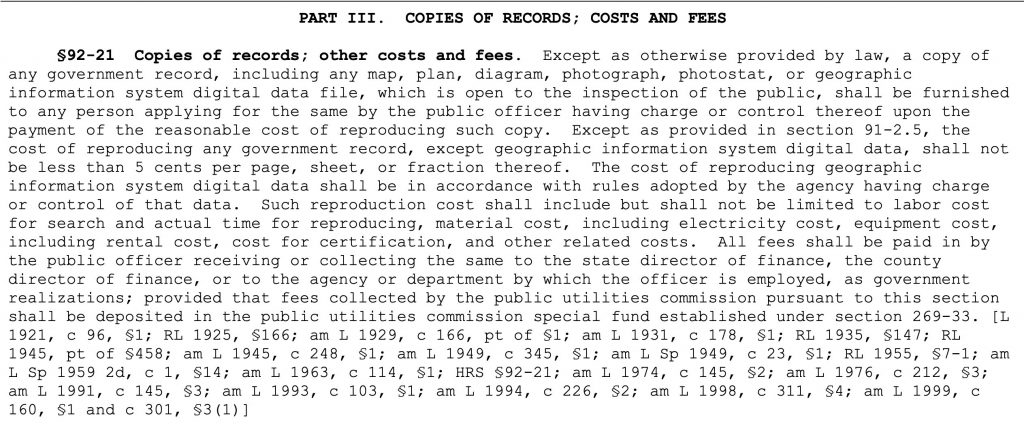Let’s see. A few little things to report.
• A week ago, I posted Part 2 of something I entitled, “It could have been a simple traffic ticket.” At that time, I wrote that a motion filed by Miske’s attorneys seeking to suppress evidence drawn from his cell phone during an arrest on December 4, 2015, was “pending.”
The judge’s order denying the motion was filed that same day, and I haven’t gotten around to updating that entry. But for now, here’s what Judge Watson had to say.
In an order filed on November 15, Judge Derrick Watson denied the motion to suppress, concluding the search and arrest of Miske were not unreasonable under the Fourth Amendment.
Miske’s attorneys produced “not one shred of evidence” that there was any “ruse or otherwise nefarious conduct with regard to the search and arrest of Miske on December 4, 2015,” Watson wrote. Without evidence, allegations in the motion amounted to mere speculation, according to the order.
Finally, Watson rejected the argument that the federal search warrant was constitutionally flawed because it didn’t comply with state law.
“Miske does not cite to any case supporting the notion that such an alleged failure or violation of State law alone refers an otherwise valid search unreasonable,” the order concluded.
• Back when Amazon first offered their Prime membership with unlimited file storage, I jumped on the service. When we moved from Kaaawa into town a little over eight years ago, I scanned a whole lot of old financial records, tax returns, bank and investment statements, etc. Then I uploaded a copy to Amazon Drive, and shredded the originals. I also uploaded thousands of photos, which ended up being moved over to Amazon Photos.
Fast forward to earlier this year, when Amazon announced it was discontinuing Amazon Drive at the end of December. Ouch!
There have been mixed messages from Amazon about whether non-photo files would continue to be accessible through Amazon Photos, or whether we need to rescue them by downloading to safe storage before the end of the year.
I’m paranoid enough that I’m preparing to do the download. The Amazon Photo app just made that easier by providing an easy way to download all non-photo or video files at once.
I’ll be trying it in the next day or two, but if anyone else has already made the move, please share your experience.
• The Honolulu Police Department is slowly moving to provide more public data. I’ve been checking the daily Honolulu Police Department arrest logs for a while. You get a quick view of what’s happening around the island crime-wise from the arrest logs.
The current logs for the past several weeks can be found with this link, and then there’s a useful public archive of the arrest logs going back a couple of years.
I’ll report on other parts of their new data system as I try them out.
• Jan Kagehiro, Communications & Community Relations Director for the State Judiciary, let me know that the eCourt Kokua online data system allows searching for upcoming court hearings either by case, or by court.
In August we added a new tab in eCourt Kokua called “Upcoming Court Hearings Search.”
Upcoming Court Hearings Search: You can see at-a-glance a two-week view of upcoming hearings by searching by case identification (ID) number or by court/location. If you use search by case ID number, you can see all upcoming hearings associated with that specific case number. If you search by court/location, you can see all upcoming hearings in all cases for that specific courtroom. The information on the site is updated in real time as hearing dates are entered into the system.
So when you get into eCourt Kokua and go to view documents, you have choices for searching, by name, vehicle (license plate), case search (starting with case #), and the new selection, “upcoming court hearings search.”
This is certainly a step in the right direction, but right now it isn’t too user friendly. I won’t say more right now, since I’ve just started taking a look at how this works and how it can be used by reporters or others interested in the courts.
• We answered a knock on our door late Tuesday afternoon, and it was a salesman from Spectrum. He said he was going door to door, checking in with those who are not current customers. He was very nice and friendly, and took it well when I told him we’re quite happy with Hawaiian Telcom as our internet provider.
But it’s the first time this has happened to us, so it will be interesting to see if it represents an increase in competition between the two big cable companies in this market.
• No turkey for us this year. When we used to shop at Foodland more often, they made it difficult not to do a turkey. They are usually free with one of their coupons, which come after spending a certain amount. Now that we don’t get to Foodland often, no coupon, so it’s easier to be honest and say even a mid-size bird is too much for two people to eat. So we’re downsizing. We bought a chicken. Don’t laugh. We’ll see how it works out.
And we were amazed to see what people are paying to buy prepared Thanksgiving meals at restaurants around town. They’ve been sold out for some time, but prices for a meal for 4 went up over $300. Ouch! We’ll stick with the chicken at home.
And I’ll probably take tomorrow off in honor of the occasion, unless the morning dogs are so cute that I’ve got to post some of their pictures.
Anyway, gobble gobble. I didn’t include the whole scene with Steve Martin confronting the rental car agent, but you might want to search it out.


